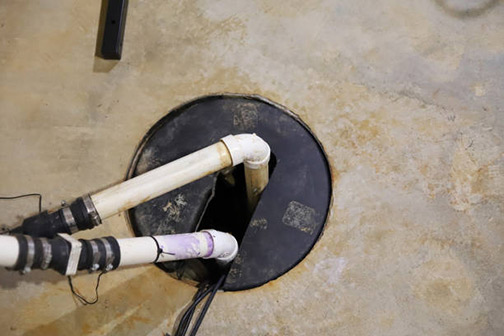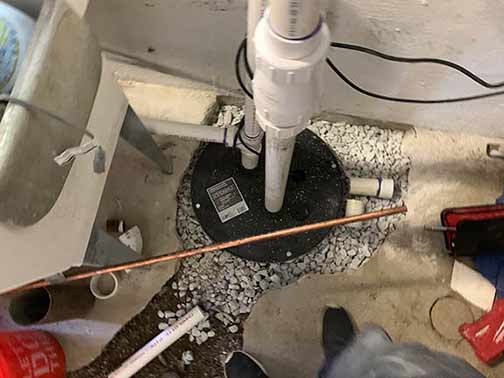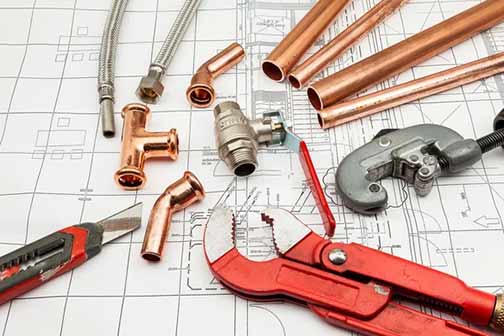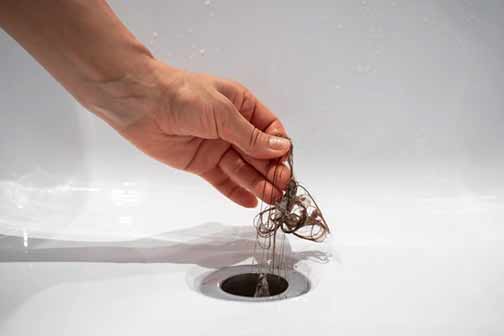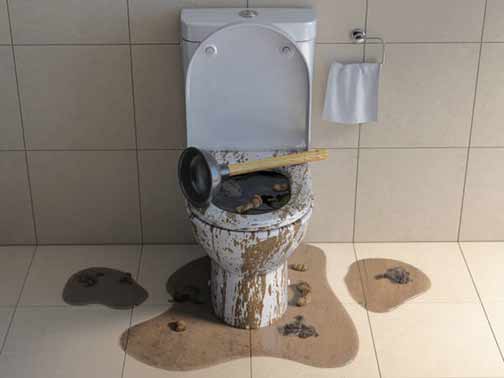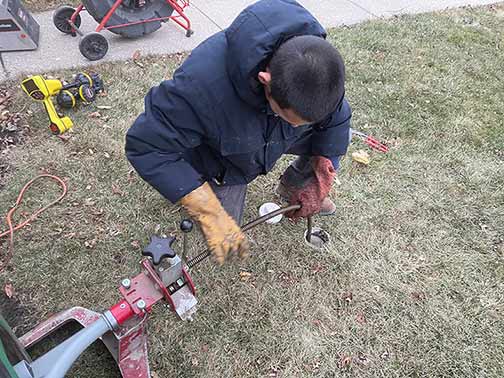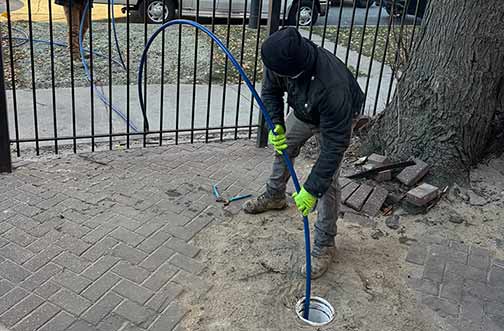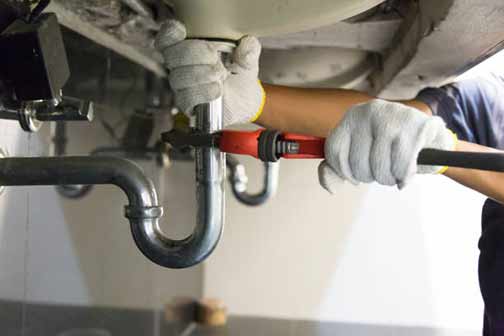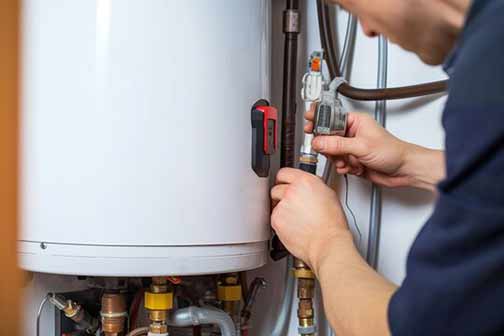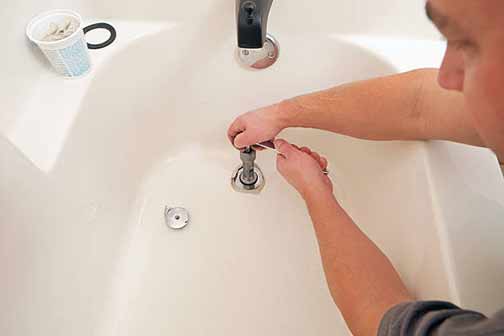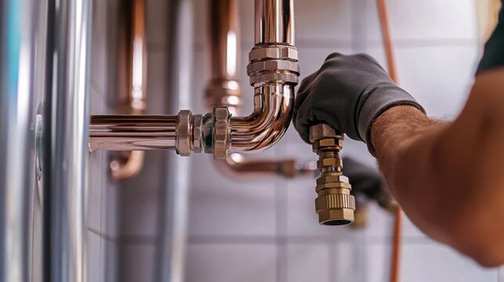
Understanding the Importance of Quality Plumbing for Your Chicago Business
In Chicago, where businesses thrive and restaurants flourish, the importance of maintaining a seamless operational flow cannot be overstated. Plumbing plays a pivotal role in ensuring that your business runs smoothly, without unexpected disruptions that could affect your service delivery and customer satisfaction. Choosing the right plumbing professionals is not just about fixing leaks or unclogging drains; it’s about safeguarding your business’s reputation and ensuring longevity.
Plumbing issues can lead to significant operational setbacks, especially in a city known for its vibrant business environment. Imagine a restaurant struggling with clogged drains or a retail store facing water supply interruptions. These problems not only hinder daily operations but also impact customer experience and satisfaction. Therefore, investing in quality plumbing services is essential to maintain the high standards expected in Chicago’s competitive market.
Moreover, the reputation of a business can be severely affected by recurring plumbing issues. Customers expect a certain level of service and comfort, and any inconvenience caused by plumbing failures can lead to negative reviews and loss of clientele. By prioritizing quality plumbing, businesses can ensure that their operations are uninterrupted and their customers remain satisfied.
Evaluating the Plumbing Needs of Your Business
Every business, be it a restaurant, retail store, or office space, has unique plumbing requirements. Restaurants, for instance, demand robust systems that can handle high volumes of water and waste efficiently. Understanding these specific needs is the first step in selecting a reliable commercial plumbing service in Chicago that can cater to your business effectively. A thorough evaluation involves assessing the current plumbing system, identifying potential issues, and planning for future needs to avoid costly emergencies.
Conducting a comprehensive assessment of your business’s plumbing needs involves examining the existing infrastructure and identifying areas that require improvement. This proactive approach helps in preventing emergencies and ensures that the plumbing system can accommodate future growth. For instance, a restaurant planning to expand its seating capacity must ensure that its plumbing system can handle increased water usage and waste disposal.
Additionally, businesses should consider the environmental impact of their plumbing systems. Opting for eco-friendly solutions not only reduces operational costs but also aligns with the growing trend towards sustainability. By choosing plumbing services that prioritize efficiency and environmental responsibility, businesses can contribute positively to the community while enhancing their own operations.
Why Expertise Matters: The Role of Professional Plumbers
Professional plumbers bring a wealth of knowledge and experience that is crucial for addressing complex plumbing challenges. Their expertise ensures that installations and repairs are done correctly, adhering to local codes and regulations. This not only prevents future problems but also ensures the safety and functionality of your plumbing system. In Chicago, where regulations can be stringent, having a seasoned professional handle your plumbing needs is invaluable.
The complexity of plumbing systems requires skilled professionals who can navigate challenges and provide effective solutions. Experienced plumbers understand the intricacies of various systems and possess the technical skills needed to address issues promptly. Their ability to diagnose problems accurately and implement solutions efficiently is crucial for maintaining operational continuity.
Furthermore, professional plumbers are well-versed in the latest industry standards and technologies. They can recommend upgrades and improvements that enhance the performance and reliability of your plumbing system. By leveraging their expertise, businesses can ensure that their plumbing infrastructure supports their operational goals and adapts to changing demands.

Aligning Plumbing Services with Business Objectives
Choosing plumbing professionals who understand your business objectives is essential. Whether you aim to expand your restaurant or enhance your office space, your plumbing system should support these goals. Professionals who offer tailored services can provide solutions that align with your business strategies, ensuring that plumbing systems are scalable and adaptable to changes in your business model.
Aligning plumbing services with business objectives involves more than just addressing immediate needs. It requires a strategic approach that considers long-term goals and plans for future growth. For instance, a business planning to open multiple locations must ensure that its plumbing systems are scalable and can support expansion efforts.
Moreover, tailored plumbing solutions can enhance operational efficiency and reduce costs. By collaborating with professionals who understand your business model, you can implement systems that optimize water usage and minimize waste. This not only reduces operational expenses but also contributes to sustainability efforts, enhancing your business’s reputation and appeal to environmentally conscious customers.
Cost-Effective Solutions for Long-Term Success
Investing in quality plumbing services may seem costly upfront, but it is a strategic decision that pays off in the long run. Professional plumbers can offer cost-effective solutions that minimize maintenance expenses and prevent major repairs. By focusing on sustainability and efficiency, businesses can save money while ensuring their plumbing systems are robust and reliable.
Cost-effective plumbing solutions involve more than just choosing the cheapest option available. It requires a comprehensive approach that considers the total cost of ownership and long-term benefits. By investing in high-quality materials and skilled professionals, businesses can reduce the frequency of repairs and avoid costly emergencies.
Additionally, efficient plumbing systems contribute to lower utility bills and reduced environmental impact. By implementing water-saving technologies and optimizing system performance, businesses can achieve significant savings while enhancing their sustainability efforts. This not only benefits the bottom line but also aligns with the growing demand for environmentally responsible practices.
Ensuring Compliance with Chicago’s Plumbing Codes
Chicago has specific plumbing codes and regulations that businesses must adhere to. Non-compliance can lead to fines and operational disruptions. Professional plumbers are well-versed in these regulations and can ensure that your plumbing systems meet all necessary standards. This compliance not only protects your business from legal issues but also enhances its credibility and trustworthiness.
Compliance with local plumbing codes is crucial for avoiding legal complications and ensuring smooth operations. Professional plumbers understand the intricacies of Chicago’s regulations and can navigate the permitting process efficiently. Their expertise ensures that installations and repairs adhere to all necessary standards, preventing costly fines and disruptions.
Moreover, compliance enhances the credibility and trustworthiness of your business. Customers and stakeholders expect businesses to operate within legal frameworks and adhere to industry standards. By prioritizing compliance, businesses can build trust and confidence among their clientele, contributing to long-term success and growth.
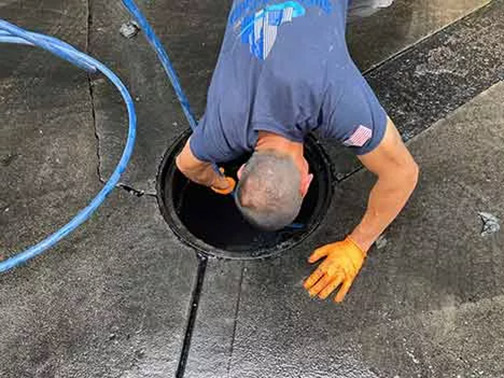
Customer Satisfaction: The Ultimate Goal
In any business, customer satisfaction is paramount. Plumbing issues can lead to inconvenience and dissatisfaction, affecting your business’s reputation. Choosing reliable plumbing professionals ensures that your systems run smoothly, providing uninterrupted service to your customers. A seamless plumbing experience enhances customer trust and loyalty, contributing to the success of your business.
Customer satisfaction is directly linked to the reliability and efficiency of your plumbing systems. Any disruptions or inconveniences caused by plumbing failures can lead to negative reviews and loss of clientele. Therefore, investing in quality plumbing services is essential for maintaining high standards of customer service.
By ensuring that plumbing systems are efficient and reliable, businesses can provide uninterrupted service and enhance customer experience. This not only builds trust and loyalty among customers but also contributes to positive word-of-mouth and reputation. In a competitive market like Chicago, customer satisfaction is a key differentiator that can drive success and growth.
Building a Long-Term Partnership with Your Plumbing Service Provider
Establishing a long-term relationship with a trusted plumbing service provider offers numerous benefits. It ensures consistent service quality and allows for proactive maintenance and upgrades. A reliable partner understands your business’s unique needs and can offer personalized solutions, helping you avoid potential pitfalls and enhancing operational efficiency.
Building a long-term partnership with a Chicago plumber involves more than just transactional interactions. It requires a collaborative approach that focuses on mutual goals and shared success. By establishing a strong relationship, businesses can benefit from consistent service quality and proactive solutions that address emerging challenges.
Moreover, a reliable plumbing partner understands the unique needs and objectives of your business. They can offer personalized solutions that align with your operational goals and enhance efficiency. This collaborative approach not only prevents potential pitfalls but also contributes to long-term success and growth.
Conclusion: Making the Right Choice for Your Business
Choosing the ideal plumbing professionals for your Chicago business is a decision that impacts your operational success and customer satisfaction. By selecting experts who understand your needs, align with your objectives, and ensure compliance with local regulations, you are investing in the future of your business. This strategic choice not only prevents costly repairs but also enhances your business’s reputation and success in the competitive Chicago market.
In conclusion, the importance of selecting the right plumbing professionals cannot be overstated. It is a strategic decision that affects various aspects of your business, from operational efficiency to customer satisfaction. By prioritizing quality plumbing services, businesses can ensure smooth operations, enhance reputation, and achieve long-term success in Chicago’s vibrant market.
—
In need of plumbing services at your restaurant or business in Chicago? We can help! Contact us today at 708-775-2566 or by form below:
